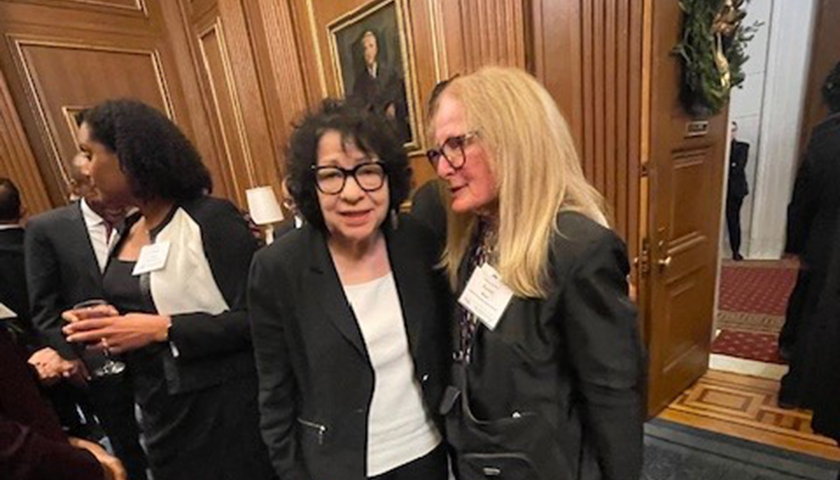Suffolk Law Professor Trains Newly Appointed Federal Judges on Civil Rights Law

Professor Emerita Karen Blum, JD '74, recently led a training session for newly appointed federal judges at the Federal Judicial Center in Washington, D.C., continuing her decades-long role as one of the nation's foremost authorities on federal civil rights law and qualified immunity.
On December 3, Blum conducted an intensive session on Section 1983—the federal law that allows individuals to sue government officials for civil rights violations—as part of the orientation program for new federal district court judges. Among the 46 judges in attendance was Suffolk Law alumnus U.S. District Judge Myong Joun, JD '99.
The week-long training program culminated in a dinner at the U.S. Supreme Court attended by the new federal judges and Supreme Court Justices Sonia Sotomayor and Ketanji Brown Jackson. Justice Elena Kagan attended the reception and Justice Sotomayor delivered welcome remarks.
"These Section 1983 issues are ones the judges encounter on a daily basis," says Blum. She is co-author of the influential text "Police Misconduct: Law and Litigation," and has been training federal judges since 1990. Her orientation covers complex topics such as when physical force constitutes a seizure under the Fourth Amendment, and how courts should evaluate the timing and circumstances surrounding the use of force by law enforcement.
Using an interactive format, Blum presented the judges with hypothetical scenarios that tested their understanding of nuanced legal concepts. The judges used electronic response systems to answer Blum’s multiple-choice questions, after which she led discussions on the controlling law. The training addressed emerging issues, for example, cases arising from recent protests where courts adjudicated whether crowd control measures like tear gas constitute seizures under the Fourth Amendment.
"The law is constantly evolving," notes Blum, who maintains comprehensive outlines on Section 1983 and qualified immunity that she updates quarterly for the federal judiciary. These reference materials, spanning thousands of pages, reflect the complexity of civil rights litigation and qualified immunity—the doctrine that shields government officials from civil suits unless their actions violated "clearly established" constitutional rights.
The training is part of Phase 2 orientation for newly appointed federal judges, conducted at the Thurgood Marshall Federal Judiciary Building. The program reflects the judiciary's commitment to staying current with rapidly developing areas of civil rights law, even as interpretations of key doctrines continue to divide circuit courts across the country.
Blum's deep connections within the judiciary have opened doors for Suffolk Law students. In 2005, Blum established Suffolk Law's First-Year Summer Internship Program (FYSIP), which places rising second-year law students in internships with state and federal judges. The program has grown significantly—in summer 2024, 80 FYSIP students will intern with approximately 70 judges and courts, including the U.S. Court of Appeals for the First Circuit and the Massachusetts Supreme Judicial Court.
The program's success reflects Suffolk Law's strong connections to the judiciary. More than a quarter of sitting state court judges in Massachusetts are Suffolk Law graduates, while in Rhode Island that figure rises to 40%. "Working with a judge builds students' confidence, provides real-world context that helps in the classroom, and forges relationships that lead to high-powered internships and better jobs," Blum says.



